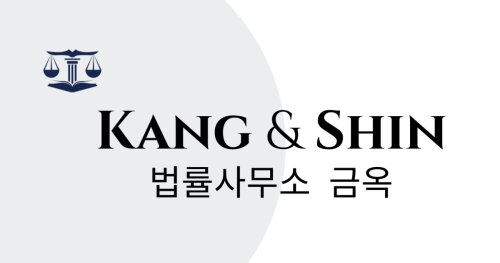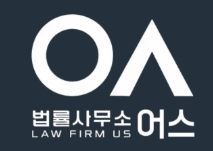Best Sexual Harassment Lawyers in South Korea
Share your needs with us, get contacted by law firms.
Free. Takes 2 min.
Or refine your search by selecting a city:
List of the best lawyers in South Korea
About Sexual Harassment Law in South Korea
Sexual harassment in South Korea is recognized as a significant violation of personal rights and integrity. The country has implemented various legal frameworks to address and prevent such misconduct. South Korean law broadly categorizes sexual harassment into workplace-related and public harassment, with specific penalties and procedural processes for each case. Generally, sexual harassment includes inappropriate verbal, non-verbal, and physical actions that cause distress or create a hostile environment for the victim.
Why You May Need a Lawyer
There are many situations where victims of sexual harassment may benefit from the expertise of a lawyer. Victims often encounter complexities regarding filing complaints, seeking protective measures, or claiming compensation. A lawyer can navigate legal processes, represent the victim in court, and ensure their rights are protected. Additionally, legal consultations can provide victims with clarity about their options and potential outcomes, empowering them to make informed decisions.
Local Laws Overview
South Korea has enacted crucial laws addressing sexual harassment. The "Labor Standards Act" and "Act on Equal Employment and Support for Work-Family Reconciliation" shield employees from workplace harassment. The "Framework Act on Gender Equality" and the "Act on the Punishment of Sexual Violence Crimes and Protection of Victims" further reinforce measures against sexual harassment both in public spaces and workplaces. These laws stipulate penalties, procedures for filing complaints, and ensure confidentiality and protection for victims.
Frequently Asked Questions
1. What constitutes sexual harassment under South Korean law?
Sexual harassment can be any unwelcome behavior of a sexual nature that adversely affects the environment for the individual at work or in public settings.
2. What are the penalties for committing sexual harassment?
Penalties can range from fines to imprisonment, depending on the severity of the harassment and the damages inflicted on the victim.
3. How can I report sexual harassment?
Victims should report to their HR department if it occurs at work, or they can directly file a complaint with the police or seek help from women's rights organizations.
4. Can I file a complaint anonymously?
While filing anonymously might be difficult in formal judicial processes, victims can initially seek confidential consultations from NGOs or legal aid services.
5. How does the law protect victims of sexual harassment?
South Korean laws ensure confidentiality and provide protection orders, employment reinstatement, or compensation for victims.
6. What should I document if I'm experiencing harassment?
Victims should document incidents in detail, including dates, times, locations, descriptions, and any witnesses or evidence, such as emails or messages.
7. Can a bystander report harassment?
Yes, bystanders can report harassment, but it is generally more effective if the victim is also engaged in the process.
8. Is there a time limit for reporting sexual harassment?
There typically is a statute of limitations, but it varies based on the type of harassment and specific laws involved.
9. What if my employer retaliates against me for reporting harassment?
Victims can file a separate complaint for retaliation, seeking legal protection and possible compensation for damages endured.
10. Are there any support systems available for victims?
Besides legal channels, victims have access to counseling services and support groups provided by various NGOs and government bodies.
Additional Resources
Several resources are available for individuals seeking help or advice on sexual harassment in South Korea. These include:
- The Ministry of Gender Equality and Family for policy guidance and victim support.- The Korean National Police Agency for reporting and investigations.- The Korea Legal Aid Corporation for free legal assistance.- Local NGOs like the Korea Women's Hotline providing support and counseling services.
Next Steps
If you or someone you know is experiencing sexual harassment and requires legal assistance, it is crucial to act promptly. Start by documenting all evidence and speaking to a legal professional to explore your options. Reach out to support organizations for guidance and psychological support and consider contacting the relevant government body to file an official complaint. Taking these steps can protect your rights and ensure that justice is pursued.
Lawzana helps you find the best lawyers and law firms in South Korea through a curated and pre-screened list of qualified legal professionals. Our platform offers rankings and detailed profiles of attorneys and law firms, allowing you to compare based on practice areas, including Sexual Harassment, experience, and client feedback.
Each profile includes a description of the firm's areas of practice, client reviews, team members and partners, year of establishment, spoken languages, office locations, contact information, social media presence, and any published articles or resources. Most firms on our platform speak English and are experienced in both local and international legal matters.
Get a quote from top-rated law firms in South Korea — quickly, securely, and without unnecessary hassle.
Disclaimer:
The information provided on this page is for general informational purposes only and does not constitute legal advice. While we strive to ensure the accuracy and relevance of the content, legal information may change over time, and interpretations of the law can vary. You should always consult with a qualified legal professional for advice specific to your situation.
We disclaim all liability for actions taken or not taken based on the content of this page. If you believe any information is incorrect or outdated, please contact us, and we will review and update it where appropriate.
Browse sexual harassment law firms by city in South Korea
Refine your search by selecting a city.















